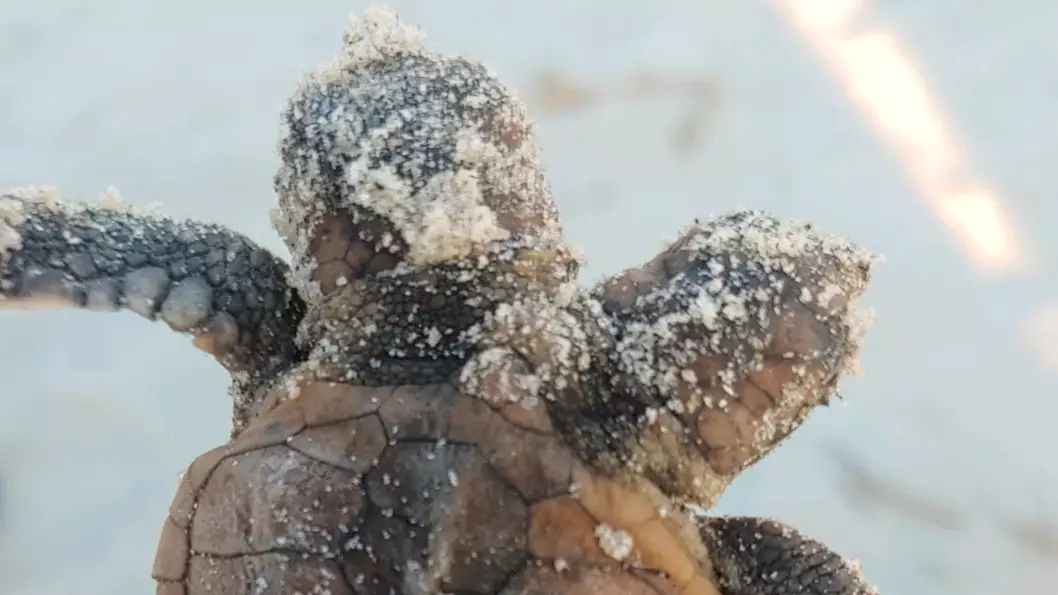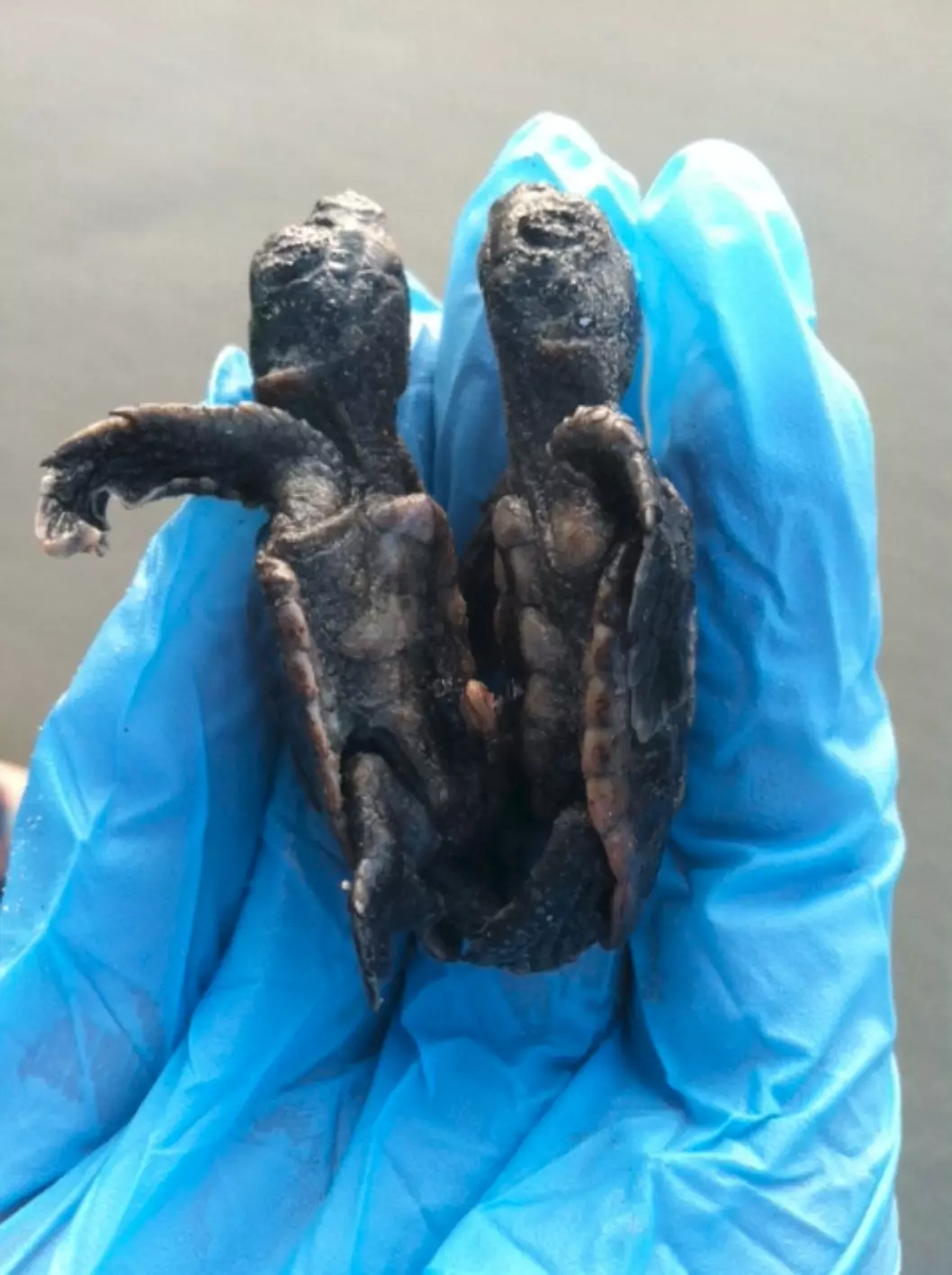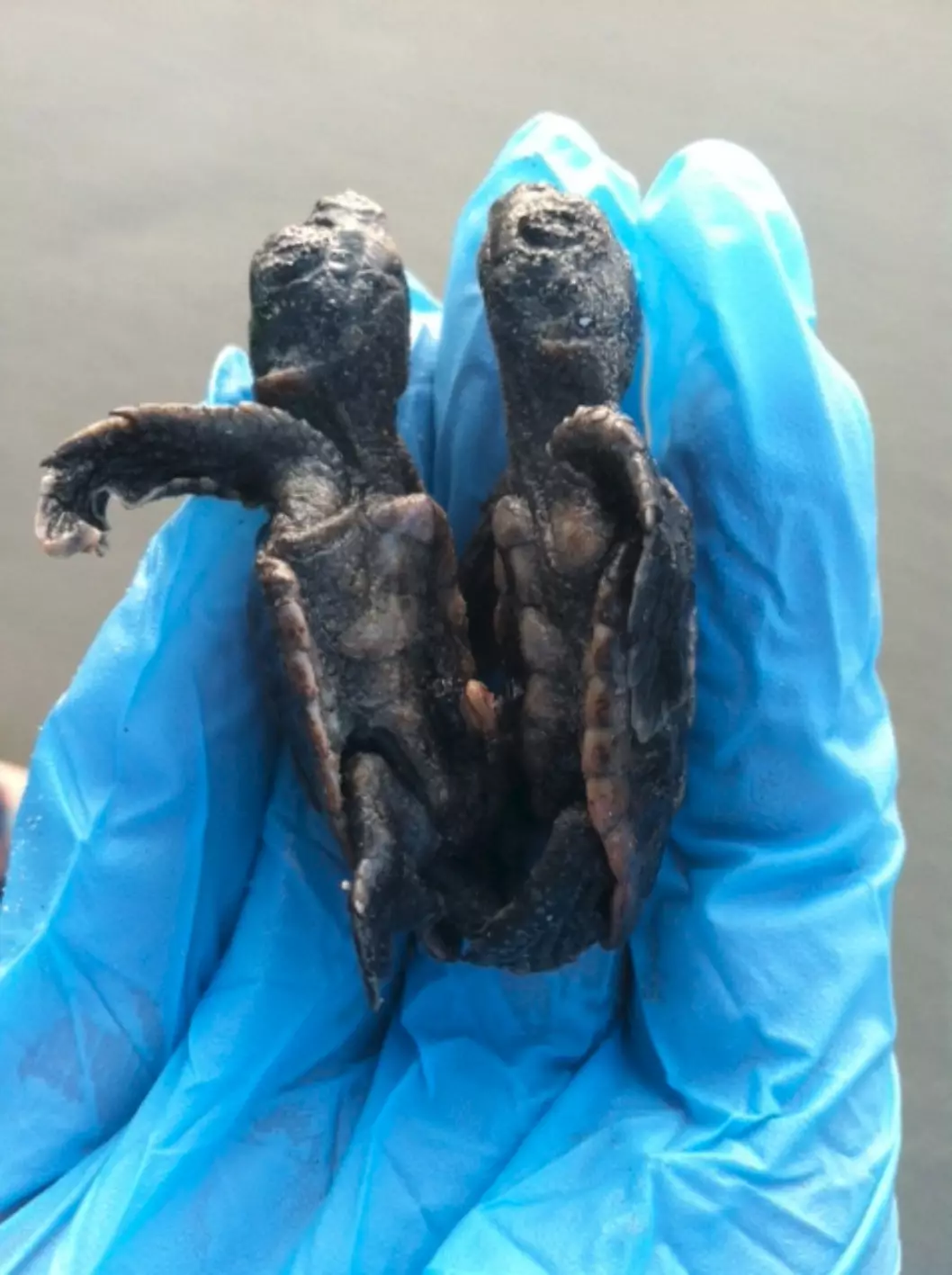
Conservationists have discovered a rare, mutated two-headed turtle on a US island.
The little turtle was found by volunteers who were checking on nests on Hilton Head Island in South Carolina.
Amber Kuehn, manager of Sea Turtle Patrol Hilton Head Island said: "It's rare but it's nothing to be concerned about.
Advert
"Some people are thinking radiation in the water, but it's not like that, it just happens in nature periodically."
She added: "In South Carolina, after we've noticed that a nest has hatched we will leave it for three days to make sure that everything comes out naturally that would come out naturally.
"Then we go in and dig everything out, we count the empty shells, we count the eggs that didn't hatch, we count live hatchlings and dead hatchlings, and we put all of that information into a database for the state.
Advert
"In this situation, there was a hatchling trapped in there - it would not have got out naturally - and it was this one with the two heads."
The volunteers have said the right head appears to control one flipper, while the left head controlled the other one.
Amber added: "There's a bump that goes down the centre of turtle's shells and there are two of them here, so they probably each have their own spine."

"They walked it past the surf and put it in the water and, of course, with two different flippers it didn't swim well at all."
Advert
Sadly, Amber isn't optimistic about its chances of survival, explaining: "In general, even for the healthy ones, it's one in a hundred.
"And this one might have been healthy, it's just their destination from South Carolina is the Gulf Stream - it's a warm water current and from Hilton Head it's 70 miles offshore.
"So for our hatchlings it's a three-day swim to the Gulf Stream. A lot can happen in three days - fish eat them, everything eats them.
"That's why there's so many entering the water at once, because if 100 enter the water, 99 of the brothers and sisters have to get eaten for that one to make it."

The volunteers weren't sure of the gender of the turtle, but said they will most likely be the same gender as they shared an egg.
Advert
"Occasionally we'll come across eggs that have double yolks," said Amber.
"Most likely that's what happened and they were just conjoined and stayed joined."